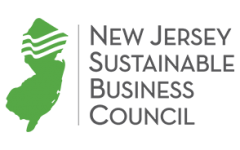Strengthening America’s national security must now be added to the list of reasons that developing wind energy off the coast of New Jersey should be a top priority.
Though happening nearly halfway across the globe, the myriad impacts of the tragic war in Ukraine continue to hit close to home. Record-high gas prices and inflation, along with disruptions in the supply of critical minerals and wheat serve as stark reminders of how geopolitical conflict can inflict harm that ripples throughout all sectors of the world economy.
The ongoing war should also serve as a lesson that each generation must relearn — increased concentration of power poses heightened danger to us all. This goes for the excessive concentration of political power in the hands of one dictator or one country, and for the excessive concentration of market power within industries in the forms of monopolies or oligopolies.
Diversification: Time-tested strategy for sustainability, resilience and security
We’ve all heard the saying “Don’t put all your eggs in one basket” so often that it can easily be dismissed as a quaint, if not antiquated, adage from simpler times. But this timeless maxim still serves as the foundational basis for some of the most sophisticated and successful investment, business and military strategies.
In 2020, fossil fuels represented 79% of U.S. energy consumption. This level of concentration in an investment portfolio, a company’s customer base or in military assets would be considered excessively risky and even irresponsible. In other words, you’d be asking for trouble — the type of trouble that is impacting all of us now, but especially tens of millions of Americans who were already under chronic economic stress.
While the U.S. is the world’s largest oil producer, we are still dependent upon what is a global market, so we are as subject to extreme price fluctuations as anyone else. American-based oil companies are transnational corporations that have a fiduciary responsibility to maximize value for their international shareholders — a goal that is not necessarily aligned with the interests of 332 million Americans.
It is in these companies’ interest to produce and sell as much oil as is profitable, and to protect the industry’s 79% energy market share by erecting barriers to entry to competitors or innovative technologies that would replace or are not dependent on fossil fuels.
Conserve what is limited; harness what is unlimited
But petroleum is not only a fuel, it is also a key material input for many of the products that we still need for our modern world, like tires, asphalt, fertilizer, lubricants, etc. Unlike renewable sources of energy like wind and solar, petroleum is a finite resource. When solar panels convert sunlight or wind turbines convert wind into energy, the supply of sunlight and wind is not diminished; its future supply is unlimited. However, when Americans use over 20 million barrels of oil each day, that amount of oil is removed from a limited and diminishing stock forever.
Given this, it is in our national interest and in the interest of future generations for us to be more conservative in our use of this limited resource. It would be more prudent for us to reserve petroleum use for those products for which it is uniquely suited, while investing in the technology that enables us to harness alternative sources of domestic energy that are unlimited in their supply.
Offshore wind is overdue addition to America’s energy and national security portfolio
In addition to generating renewable energy, the development of offshore wind will help lower carbon emissions that harm human health, while stimulating billions of dollars in economic growth and creating tens of thousands of new jobs in New Jersey. Since offshore wind energy will be produced and used domestically, it will help to lessen our dependence on a global supply chain that is increasingly vulnerable to geopolitical instability, supply shortages and price spikes.
Offshore wind will help create a more vibrant and sustainable clean energy economy while also strengthening our national security, so all New Jerseyans should support its responsible development.
Richard Lawton is the executive director of the New Jersey Sustainable Business Council, a network of companies that is working to advance market-driven innovation and policy change to create a more vibrant and sustainable economy.
This Op Ed was originally published in ROI-NJ.com on July 15, 2022.

